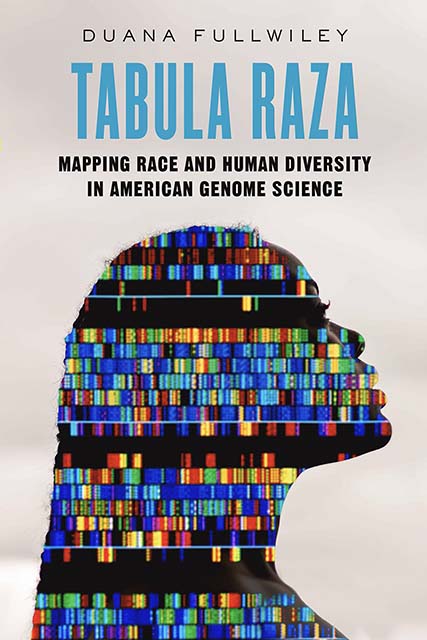The Diana Forsythe Prize was created in 1998 to celebrate the best book or series of published articles in the spirit of Diana Forsythe’s feminist anthropological research on work, science, or technology, including biomedicine. The prize is awarded annually at the AAA meeting by a committee consisting of one representative from the Society for the Anthropology of Work (SAW) and two from CASTAC. It is supported by the General Anthropology Division (GAD) and Bern Shen.
2025 Call for Nominations for the Diana Forsythe Prize
Please spread the word far and wide that the Diana Forsythe Prize committee is now accepting nominations for the Diana Forsythe Prize, due no later than June 1, 2025 (early nominations are appreciated). Self-nominations are welcomed.
Submission Requirements
- To be eligible, books (or article series) must have been published in the last five years (copyright of 2020 or later).
- Formal letter of nomination outlining how the book (or article series) exemplifies the spirit of Diana Forsythe’s feminist anthropological research on work, science, or technology, including biomedicine. (Self-nominations are welcomed.)
- Three physical copies of the book (or article series) must be mailed to the selection committee members.
Nomination Procedure
Note: This nomination procedure is required to be considered. Publishers, formal nomination letters are required for each book nominated.
- Complete the online submission form and upload the formal letter of nomination to the form by June 1, 2025 (11:59 PM CDT).
- Once the nomination has been submitted and verified as meeting minimum requirements, the publisher/nominee will be provided with the correct addresses to send copies of the book (or article series) to each committee member within 2-3 business days.
- Mail one copy of the book (or article series) to each committee member, postmarked by June 10, 2025 or immediately upon receipt of addresses.
 2024 Diana Forsythe Prize Winners
2024 Diana Forsythe Prize Winners
Winner: Duana Fullwiley, Tabula Raza: Mapping Race and Human Diversity in American Genome Science (University of California Press, 2024)
This brilliant and brave book, based on two decades of deep ethnographic engagement with genome scientists, powerfully demonstrates the stakes of twenty-first century genetic diversity research and the racialized histories that animate it. Fullwiley shows how biological race is a powerful fiction that shows up in social interactions, in corporate investments, and in research funding, despite long established confirmation within genetics that race doesn’t exist as such. Further, her attention to racialized genomics workers, from prominent academics and lab directors to entry-level technicians and students, provides nuanced texture for understanding the promises and disappointments of pursuing race and gender equity through genomic science. As it follows everyday negotiations with the politics of “inclusion,” Tabula Raza beautifully exemplifies the spirit of Diana Forsythe’s feminist anthropological research on work, science, technology, and biomedicine.
Previous Winners
2023 Bettina Stoetzer, Ruderal City: Ecologies of Migration, Race, and Urban Nature in Berlin (Duke University Press, 2022)
2022 Adriana Petryna, Horizon Work: At the Edges of Knowledge in an Age of Runaway Climate Change (Princeton University Press, 2022); Noah Tamarkin (Hon. mention), Genetic Afterlives: Black Jewish Indigeneity in South Africa (Duke University Press, 2020)
2021 Alex Blanchette, for Porkopolis: American Animality, Standardized Life, and the Factory Farm (Duke University Press, 2020); Radhika Govindrajan (Hon. mention) Animal Intimacies: Interspecies Relatedness in India’s Central Himalayas (University of Chicago Press, 2018)
2020 Mythri Jegathesan Tea and Solidarity: Tamil Women and Work in Post-War Sri Lanka, (University of Washington Press 2019); Alondra Nelson (Hon. mention) The Social Life of DNA:Race, Reparations, and Reconciliation after the Genome, Beacon Press
2019: Lilly Irani for Chasing Innovation: Making Entrepreneurial Citizens in Modern India (Princeton University Press 2019); Juno Salazar Parreñas (Hon. mention) Decolonizing Extinction: The Work of Care in Orangutan Rehabilitation
2018: Sara Ann Wylie, for Fractivism: Corporate Bodies and Chemical Bonds (Duke 2018)
2017: Sareeta Amrute, for Encoding Race, Encoding Class (Duke, 2016)
2016: Eben Kirksey for Emergent Ecologies (Duke, 2016)
2015: Gabriella Coleman for Hacker, Hoaxer, Whistleblower, Spy: The Many Faces of Anonymous (Verso, 2014)
2014: S. Lochlann Jain for Malignant: How Cancer Becomes Us (University of California Press, 2013)
2013: Heather Paxson for The Life of Cheese: Crafting Food and Value in America (University of California Press, 2012)
2012: Rene Almeling for Sex Cells: The Medical Market for Eggs and Sperm (University of California Press, 2011)
2011: Alexander Edmonds for Pretty Modern: Beauty, Sex and Plastic Surgery in Brazil (Duke University Press, 2010)
2010: Elly Teman for Birthing a Mother, The Surrogate Body and the Pregnant Self (University of California Press, 2010)
2009: Emily Martin, for Bipolar Expeditions: Mania and Depression in American Culture (Princeton University Press, 2007)
2008: João Biehl, for Will to Live: AIDS Therapies and the Politics of Survival (Princeton University Press, 2007)
2007: Marcia Inhorn, for Local Babies, Global Science: Gender, religion and in vitro fertilization in Egypt (Routledge, 2003)
2006: Jan English-Lueck, for Cultures@SiliconValley (Stanford University Press, 2002)
2005: Joe Dumit, for Picturing Personhood: Brain Scans and Biomedical Identity (Princeton University Press, 2004)
2003: Cori Hayden, for When Nature Goes Public: The Making and Unmaking of Bioprospecting in Mexico (Princeton University Press, 2003)
2002: Lucy Suchman, for the body of her work
2001: Stefan Helmreich, for Silicon Second Nature: Culturing Artificial Life in a Digital World (University of California Press, 1998)
2000: David Hess, for the body of his work
1999: Rayna Rapp, for Testing Women, Testing the Fetus: The Impact of Amniocentesis in America (Routledge, 1999).